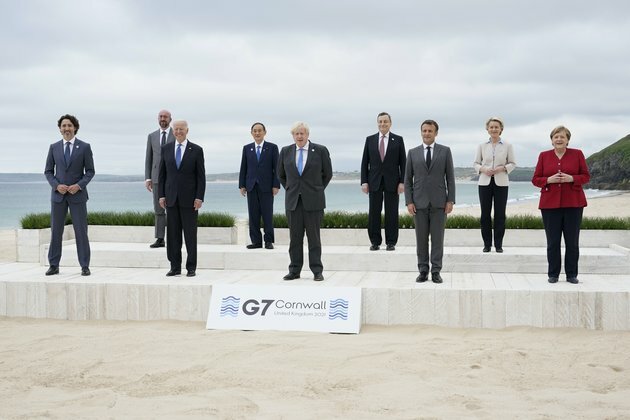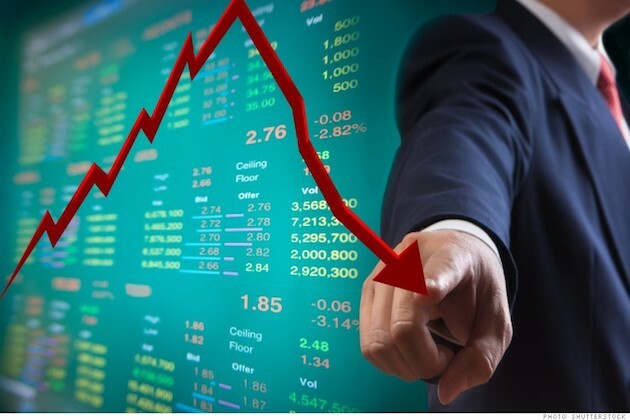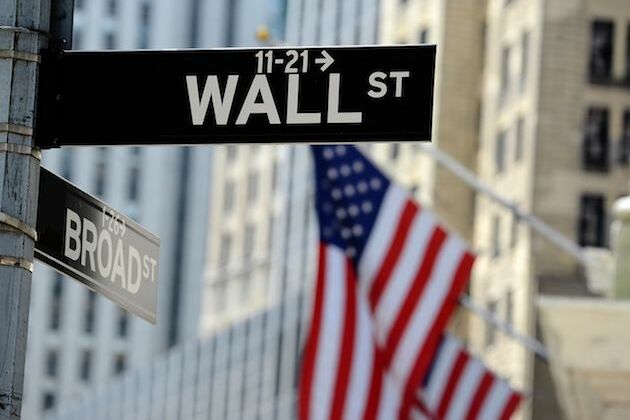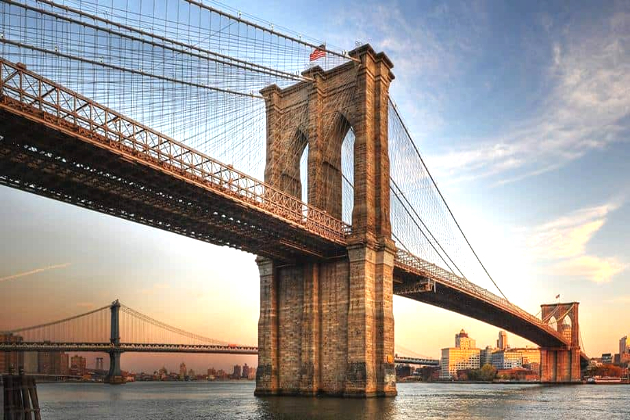G7 showed that post-Trump, the world has shifted
The Conversation
14 Jun 2021, 12:08 GMT+10

What a difference a year makes in international diplomacy.
A year ago, then-US President Donald Trump was obliged to abandon his plans for a G7 summit at the presidential retreat of Camp David outside Washington.
Various excuses were advanced by participants, including the inadvisability of travelling across the world in the midst of a pandemic. But in reality few, if any, G7 leaders wanted to associate themselves with Trump in what was hoped would be the last days of an ill-starred presidency.
A year later, these same leaders gathered at an English coastal retreat - in the shadow of a persistent COVID-19 pandemic - to celebrate the end of a disruptive chapter in diplomatic history. Relief was palpable in the interactions of representatives of the United States, United Kingdom, France, Germany, Japan, Italy and Canada.
America was back, not in its "America First" guise, but as the proclaimed leader of the free world, to use an old-fashioned description.
However, in the four years of the Trump presidency, during which Washington effectively abandoned its global leadership role in favour of an inward-looking posture defined by its embrace of an America First doctrine, the world had changed, and shifted dramatically.
Read more: Grattan on Friday: Scott Morrison's quest to be a Biden 'bestie'
In 2016, the final year of the Obama administration, the G7 summit in Japan focused on the issue of climate in the wake of the Paris Agreement signed in April of that year. Its other priorities were disputes in the South China Sea and, interestingly enough, the need to strengthen a global response to pandemics in light of experiences with the Ebola virus in Africa.
That global response has been found to be inadequate. This prompts the question: what notice did global health authorities, principally the World Health Organization, take of the G7's 2016 communique?
Five years later, the challenges identified in the 2016 document have been vastly magnified. This has been brought about by a combination of lack of US leadership on issues such as climate, and a broader global failure to manage China's rise.
In 2016, China's activities in the South China Sea in defiance of the United Nations Convention on the Law of the Sea (UNCLOS) were a growing concern, as were signs of its increasing assertiveness under its nationalist leader, Xi Jinping.
But the consensus view then was that China's rise could be accommodated without undue disruption to a rules-based international order. That has proved a significant miscalculation.
Fast-forward to the 2021 G7 in Cornwall, where concerns about China's rise in its various dimensions stalked the round-table discussions and bilateral meetings. No other issue came close to matching worries about China: not climate change, nor the ongoing challenges of the pandemic.
In the end, the G7 communique was relatively restrained on China. This reflected differences of opinion among participants about how to manage a difficult situation. The US and Canadians would have liked stronger language. The Europeans favoured a less hawkish approach. Japan was somewhere in the middle.
References to China were nevertheless pointed, in contrast to previous G7 communiques, which have danced around the issue of Beijing's challenges to a rules-based global order.
From an Australian perspective, the communique's reference to China's resort to economic reprisals to punish those who found themselves at odds with its policies will have been welcome:
On human rights, the G7 was commendably forthright:
Significantly, Taiwan made its way into a G7 communique for the first time. Here, the world's leading democracies issued a fairly blunt warning to Beijing not to further destabilise relations across the Taiwan Strait:
Predictably, Chinese commentators dismissed the G7 process as a sideshow, claiming "the world's economic and political centre of gravity had shifted", as the nationalist Global Times put it.
Morrison, as an official guest, will have been relieved the G7 did not reach a consensus on the timing for a phase-out of coal for generating electric power. On the other hand, he will not have overlooked strong language in the communique calling for a commitment to achieve net zero greenhouse gas emissions "as soon as possible".
Australia will have had no issue with other G7 initiatives such as calls for a global minimum tax to ensure greater global equity. Nor will it object to a proposal for liberal democracies to contribute to an infrastructure fund to compete with China's Belt-and-Road initiative in the developing world.
Morrison will no doubt have been disappointed he did not have a "one-on-one" meeting with US President Joe Biden. Instead, he had to make do with a three-way conversation involving the summit's host, UK Prime Minister Boris Johnson. It is not clear whether this was a snub, but those briefing journalists in advance of the G7 should not have raised expectations.
In one respect, Morrison will have found the Cornwall G7 awkward. No other leader of a Western liberal democracy had aligned themselves as closely with the Trump White House.
In his attempts to position himself alongside Trump, Morrison echoed the then US president's antagonism towards international institutions, broadly summed up by the Morrison's reference to "negative globalism" in a Lowy Institute speech in 2019. These were sentiments the former US president used to promote his version of an America First policy, in contrast to the multilateralist tendencies of his predecessors.
Morrison's adoption of this Trumpism, now quietly discarded in his public statements, sits uncomfortably with the new president's emphasis on Washington's global leadership in partnership with like-minded countries and institutions.
Pointedly, the G7 communique reiterated liberal democracies' commitment to "multilateralism".
If nothing else, Australia's prime minister should have concluded in Cornwall that his own personal investment in a Trump presidency was not the most prudent course. The world has shifted.
Author: Tony Walker - Vice-chancellor's fellow, La Trobe University 
 Share
Share
 Tweet
Tweet
 Share
Share
 Flip
Flip
 Email
Email
Watch latest videos
Subscribe and Follow
Get a daily dose of Taiwan Sun news through our daily email, its complimentary and keeps you fully up to date with world and business news as well.
News RELEASES
Publish news of your business, community or sports group, personnel appointments, major event and more by submitting a news release to Taiwan Sun.
More InformationBusiness
SectionStanstead-Derby Line free passage halted as US tightens rules
STANSTEAD, Quebec: U.S. authorities have decided to end a long-standing unwritten rule that allowed people from Stanstead, Quebec,...
Wall Street closes down, AI investors feel the heat
NEW YOKK, New York - U.S. stocks fell sharply Wednesday with tech stocks, mainly those associated with AI, taking the brunt of the...
Canada moves to cut trade barriers as US tariff threat grows
TORONTO, Canada: As the threat of U.S. tariffs looms, Canada is looking inward to strengthen its economy by removing domestic trade...
Ticketing platform StubHub to float IPO
NEW YORK CITY, New York: StubHub is getting ready to hit the trading floor. The popular ticketing platform has officially filed to...
Wall Street on edge but major indices notch up marginal gains
NEW YORK, New York - The rally in U.S. stocks petered out Tuesday, however tech stocks made a modest gains, while the industrials edged...
Canada’s carbon tax faces pushback from politicians, oil industry
CALGARY, Canada: Canada's carbon pricing policy, long a central pillar of its climate strategy, is facing mounting pressure as political...
International
SectionUS unveils plan to modernize air traffic control amid safety concerns
WASHINGTON, D.C.: With flight delays rising and aviation safety under scrutiny, the U.S. government is preparing a sweeping modernization...
NTSB calls for urgent safety checks on 68 US bridges, including icons
WASHINGTON, D.C.: The U.S. National Transportation Safety Board (NTSB) has called for urgent safety checks on 68 bridges, including...
US expands oil, gas leasing and eases Alaska energy restrictions
WASHINGTON, D.C.: U.S. Interior Secretary Doug Burgum has announced plans to open more land for oil and gas drilling in Alaska and...
Lawmakers push for fewer military flights in Washington D.C. area
WASHINGTON, D.C.: Ten Democratic lawmakers in the U.S. House of Representatives have asked the Pentagon to reduce military training...
Delta crash-landing probe finds dangerous descent before touchdown
TORONTO, Canada: An initial investigation into last month's dramatic Delta Air Lines crash-landing in Toronto has revealed that the...
New York court blocks law allowing over 800,000 non-citizens to vote
NEW YORK CITY, New York: New York State's highest court has struck down a law this week that would have allowed over 800,000 legal...













